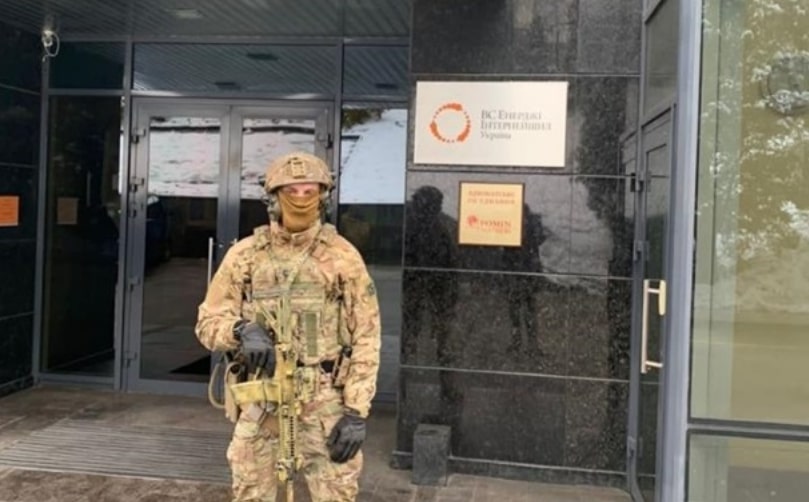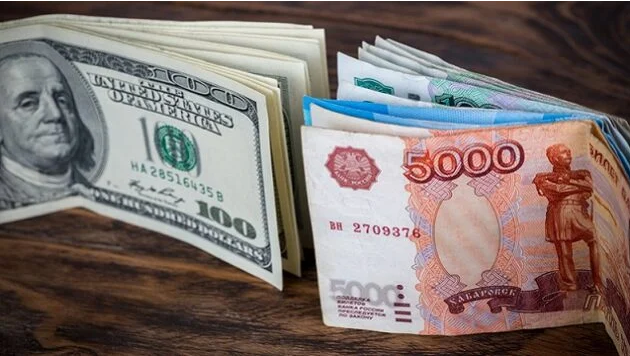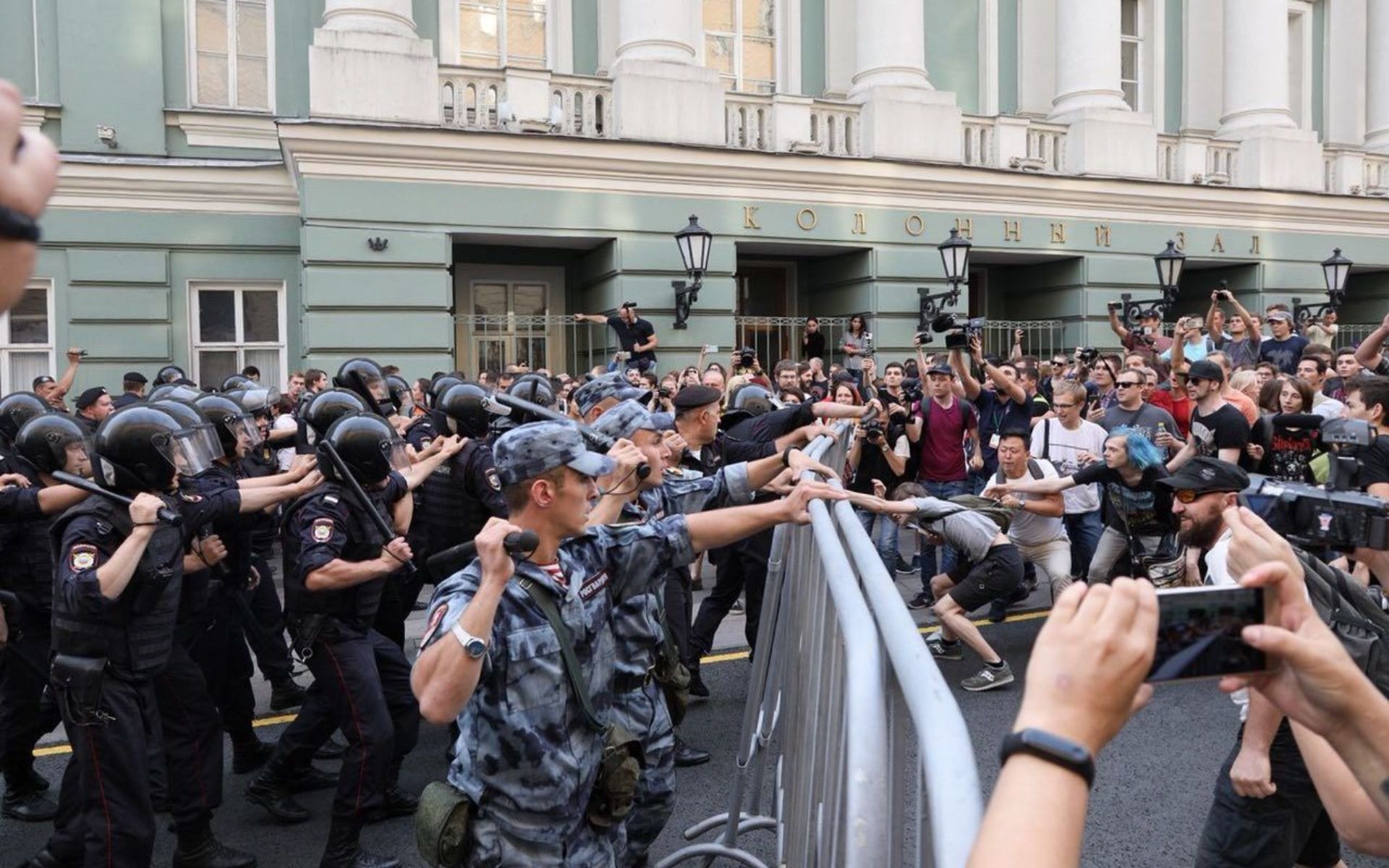Article by: Olha Datsjoek, Ties Keyzer. Edited by: Bohdan Ben
Having frozen more than $300 billion in Russian mainly state assets, the EU and US are much slower on freezing, let alone confiscating private assets of Russian oligarchs. Currently, Ukraine is pursuing a sanctions case against one of the country's largest energy companies, owned by Russians, that could potentially lead to a breakthrough.
In this case, Ukraine aims to confiscate energy assets controlled by three oligarchs affiliated with the Kremlin through an international network of letterbox companies, particularly VS Energy, located on Amsterdam's Keizersgracht. A positive outcome would become a precedent for both Dutch and EU sanctions policy, accelerating the confiscation of other Russian oligarchs’ property in the West for Ukraine.
The Council of Europe makes the first step to compensate Ukrainian war losses using Russian assets
The case involves VS Energy Group, a Dutch-registered entity that controls nearly a third of Ukrainian regional distributors of electricity (oblenergos) and other properties generating tremendous profits. Three Russian oligarchs who supported the Russian invasion (Alexander Babakov, Yevgeny Giner, and Mikhail Voedovin) purchased Ukrainian oblenergos in the early 2000s as assets undervalued then but sold by the state due to lobbyism. Subsequently, they created VS Energy as an intermediary company in the West, formally owned by their former business partners.
Iryna Mudra, Ukraine’s Deputy Minister of Justice, names this the "most important Ukrainian sanctions case to date." According to her, the Russian owners, who also own metal factories, hotel chains, and shopping malls, use the income from their Ukrainian business empire to finance the Russian invasion.
Mudra wants to confiscate the assets of the so-called VS Energy group to regain control of Ukraine’s vital infrastructure and to use the income for reconstruction. Yet, the difficulty is to persuade the court that the formal owners of VS Group are actually subordinated to three Russian oligarchs.
On 28 June 2023, Ukraine’s Ministry of Justice filed a lawsuit at the High Anti-Corruption Court of Ukraine to apply a sanction in the form of confiscation of the assets of the VS Energy group.
Dutch outlet News Hour (Nieuwsuur) investigated, based on annual reports, court documents, and interviews with those involved, what role the Dutch branch plays in this case and discovered that confiscation ruling in Ukraine could accelerate both Dutch and European sanctions policy. News Hour worked together with Ukrainian colleagues from Radio Free Europe/Radio Liberty and EuroMaidan Press
Russian assets in the Ukrainian economy
Ukraine is not just fighting Russia in the trenches. Since the Russian invasion, the Ukrainian government has been fighting against Kremlin-linked oligarchs who have entrenched themselves deeply in the Ukrainian and EU economies in recent decades. In addition to the energy sector, they also have assets in the mining, steel production, port sector, banking, shopping centers, and real estate sectors.
At the moment, the battle is difficult. Ukraine manages to seize homes, cars, bank accounts, and works of art. Still, of the 905 companies the government hopes to confiscate, only two have been successfully transferred to the appropriate recovery fund, as per the Ukrainian branch of Transparency International.
- Ukraine’s court arrested seven luxury hotels as Ukraine continues seizing Russia’s and oligarchs’ property
According to sanctions expert Tetiana Shevchuk, who mapped Russian domestic assets for the Ukrainian Anti-Corruption Action Center, the Ministry of Justice has to prepare the lawsuits with a limited staff. This is a problem given that the verdict pronounced in Ukraine is usually challenged in an international court.
Shevchuk says that the case against VS Energy should provide a breakthrough. If a Ukrainian verdict stands and the government manages to confiscate the group of companies, it will accelerate the lawsuits against other Russian oligarchs.
But for that to happen, the Ukrainian prosecutor must be able to prove that the current Latvian and German owners of VS Energy are, in fact, frontmen of the three Russians who founded the company at the beginning of this century.
International empire of VS Energy

It was the Russian politician Alexander Babakov who, in 2002, moved his then modest Ukrainian possessions to the Netherlands. Shortly before that, he had bought oblenergos (regional energy companies that supply electricity to millions of households).


He did this together with Yevgeny Giner, active in the Russian arms industry and president of CSKA Moscow, the football club of the Russian army, and Mikhail Voedovin, listed in the Interpol with nickname Misha Luzhnetskiy. Misha is seen as the head of the Moscow mafia group Luzhniki, to which Giner is also linked.
Babakov registered the VS Energy International NV and Washington Holding BV at Keizersgracht 62, in a mansion where hundreds of other letterbox companies are located, at an Amsterdam civil-law notary. He took over as director himself.
In the following years, VS Energy Group acquired more and more oblenergos until it became one of Ukraine's three major electricity grid owners. Babakov and his partners also built up a substantial real estate portfolio, including hotels, shopping centers, and metal companies.
In 2014, Babakov voted in the Russian State Duma for the Russian annexation of Crimea. It earned him a spot on Europe's sanctions lists and put VS Energy in the crosshairs of Ukrainian media, which widely reported that the country's second-largest electricity company was owned by loyal allies of Putin.
Shortly afterward, the ownership structure of the group of companies was overhauled. VS Energy was acquired by three Latvian and two German citizens. After this, Babakov invariably denied having anything to do with the energy companies: "I don't own any shares, that's a fact," he stated.
Because of Babakov's financial and political connection to Putin, he and his associates, according to Ukraine, form a "criminal organization" that is guilty of financing terrorism and violating the country's territorial integrity. Since Babakov supported both the annexation of Crimea and the invasion of Ukraine, he has been on the US, European, and Ukrainian sanctions list since 2014.
Smokescreen of intermediaries in the EU
Two weeks after the Russian invasion of Ukraine, the Ukrainian parliament passed a law allowing Ukraine to expropriate any property proven to be in the hands of Russians who support the war. It was a crucial step to “strip Ukraine of all Russian influence,” as said Ukraine's President Zelenskyy.
“Russian oligarchs control critical infrastructure here,” commented sanctions expert Shevchuk. “That is life-threatening in times of war. Moreover, money flows to Russia through those companies, money that Ukraine itself desperately needs to repair war damage.”
Shevchuk also said that only two banks of the 905 Russian companies have been fully confiscated after a year and a half is not only due to understaffing at the ministry. That is because “Russian oligarchs disguise their involvement with companies here through intermediaries and international partnerships. A Dutch parent company gives the impression that you are not a Russian, but a European company.”
Stooges who help Russians to control the company
The Ukrainian assets in VS Energy fall under the Keizersgracht branch, which in turn forms the spider in the web of a network of subsidiaries stretching from Switzerland, Latvia, Great Britain, Malaysia, the British Virgin Islands, and the Seychelles.
According to the Ukrainian public prosecutor, the current Latvian and German owners function as stooges for the formally retired Russians. There are indications for that.
All formal owner are current or former business partners of Babakov or Giner. According to the French newspaper Le Monde in 2016, the current CEO even played a key role in the important foreign political interests that Babakov represents for Putin. When the French National Front took out a much-discussed loan with a Russian bank that year, the Latvian ex-banker was Babakov's deputy, who himself was unable to travel to the EU because of European sanctions against him.
International legal assistance needed
The Ukrainian public prosecutor issued a judicial request for legal assistance to his Dutch colleague.
“Profits from Ukraine run through the Netherlands,” explains lawyer Heleen de Linden. “Ideally, you want to freeze them as quickly as possible before they are suddenly channeled away in the run-up to the verdict.”
The Dutch authorities have provided company information in response, the Ukrainian Ministry of Justice told Nieuwsuur. Nevertheless, according to the latest Chamber of Commerce documents, the Dutch company is still active. At the end of December, after Ukraine had informed the Dutch authorities, the company issued shares of 64.8 million euros.
These are considerable amounts, especially when compared to the slightly more than 600 million in Russian assets that the Netherlands has so far frozen. But although EU President Ursula Von der Leyen said at the end of last year that both the Russian state “and the oligarchs” should pay for the war damage in Ukraine, the hunt for private Russian property is difficult.
“In a year and a half of war, Europe has only managed to freeze the assets of Russian oligarchs to a very limited extent,” says Shevchuk, “let alone have them confiscated.”
According to sanctions expert Yvo Amar, this is partly due to political hesitation.
“Europe fears that taking away private property in the future will cause entrepreneurs from countries with which the EU does not have the best relationship to think twice before investing here.”
In addition, it is also legally a lot more difficult, says Amar: “You have to be able to prove convincingly that an oligarch supports the war through his company. If you cannot do that, such an oligarch will successfully appeal, and you will be left empty-handed.”
Possible domino effect
But it is precisely here that the Ukrainian lawsuit against VS Energy can bring a change, all three experts expect. “It would be unique if a Russian oligarch is convicted in Ukraine for his involvement in the war, and the Netherlands adopts that sentence,” says Amar.
The Netherlands will then have all the legal means to make the Dutch assets of VS Energy available to Ukraine.
“The principle is the same as a member of the Mafia who is convicted in Italy and still has credit here. The Netherlands will then confiscate them and make them available to Italy.” According to Amar, this happens regularly, “but if it were successfully applied in a war situation, it would be a first.”
“This can cause a landslide in similar cases,” Heleen de Linden agrees. Moreover, a conviction can also ensure that VS Energy also appears on the European sanctions list. “Now, only Babakov has been sanctioned in both Ukraine and the Netherlands, his business partners are not. If they do, they would be easier to deal with.”
Shevchuk sees how oligarchs are still counting on the sanctions being lifted at some point or that they will successfully take action against them in European courts. “We hope for a positive case that prevents that. This case can became such a one.”
How Ukraine’s power grid survived a winter of Russian energy terror





